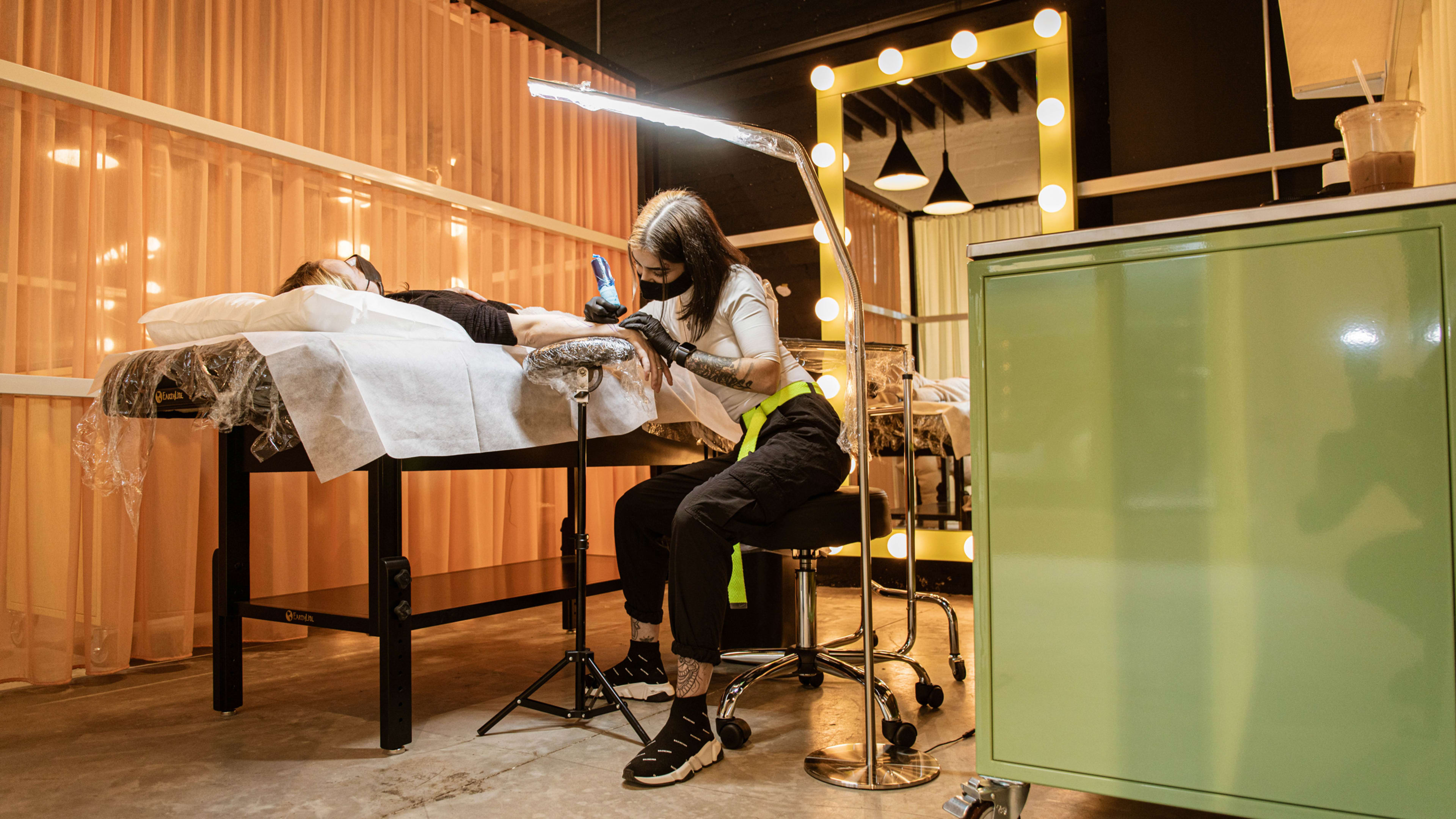Tattoos are more popular than ever. Half of all American adults have one, in a trend fueled by ink-loving millennials. But that doesn’t mean getting a tattoo isn’t still a question of commitment. Everyone getting a tattoo must ask themselves: Do I really want this on my body for the rest of my life?
Or they did. Now, a company called Ephemeral is offering a new type of tattoo, which promises to fade away in 9-15 months. That might sound like blasphemy, or that might sound like genius. In any case, the company has just opened its first location in Brooklyn and is taking reservations—which are already booked three months out.

To be clear, getting an Ephemeral tattoo is still every bit as painful as getting a traditional one. It’s not a stick-on, temporary tattoo that just needs a wet washcloth. Ephemeral uses the exact same needle-based tattoo machines to apply the tattoo to a person’s skin, in the exact same way, as the permanent tattoos we know. The only difference is that the ink is formulated to break down in your skin over time.



Indeed, Ephemeral is extremely cognizant about customer satisfaction as it builds its reputation and expands its footprint. It hired a team of five seasoned and respected tattoo artists who would be capable of giving great tattoos with proper technique to mitigate scarring. The Brooklyn studio is set up with a lush sitting room full of plants, so it looks more like a spa or hair salon than a late-night tattoo parlor. Customers are tattooed in private spaces, rather than openly in the studio. And when you book the appointment online, you can share art styles you like to narrow down the “What should I get??” panic that can happen the first time you get into the chair.

Some of this plan is clearly born from Sakhai’s failed, first attempt to get a tattoo. To his immigrant parents—who are Persian and Jewish— tattoos were off-limits. So in college, as an act of rebellion, he went to a tattoo parlor to get inked. But when he couldn’t make up his mind, he was shamed out of the tattoo studio and left feeling like a poseur. Sakhai never got a traditional tattoo, but he’s spent all of his professional energy since leaving school to bring Ephemeral about.
Some of this plan is also born from the experience of CEO Jeffrey Liu, who spent six years at Tesla, watching how successful Elon Musk was at selling the world on burgeoning electric cars by maintaining control of every aspect of the experience.

The team has several convincing answers. For one, they believe that there are 60 million Americans who want tattoos but can’t commit. Secondly, they point out that tattoos are addictive. We all have at least one, heavily tattooed friend who’s in and out of parlors all the time. But Ephemeral points to market research that 80% of people who get a tattoo get more than one. Almost all have more than four. So if you get someone to get one tattoo, chances are they’ll be hooked.
However, Ephemeral is thinking a bit bigger than that; they hope to alter the way you think about tattoos altogether. “The behavior we’re taking a bet on is people are going to use this in a way that celebrates change. I think of apparel or hair coloring,” says Sakhai. “We’re taking a bet that this is the next frontier of expression.”
In other words, Ephemeral won’t give you a self-destructing tattoo to avoid regret; it will give you a seasonal tattoo to embrace the latest trends and even your latest self (for instance, two guys who recently got matching Karl Marx tattoos on their butt cheeks at Ephemeral). However, the concept gets even more powerful when the team shares some of its bigger long-term plans: cosmetic tattoos (like eyeliner) that you don’t have to live with once the look goes out of style. Ephemeral also sees an opportunity with cancer patients who must get a series of small tattoos for lining up radiology equipment. Rather than being stuck with a few marks on their body for the rest of their lives, a patient could choose an Ephemeral tattoo and forget that painful process.
“As non-tattooers, approaching this with a fresh lens, we took a liberty to design this experience from the ground up,” says Sakhai. Now only time will tell if Ephemeral is a fleeting fad or a poised for a lasting, global footprint.
Recognize your brand’s excellence by applying to this year’s Brands That Matter Awards before the early-rate deadline, May 3.
